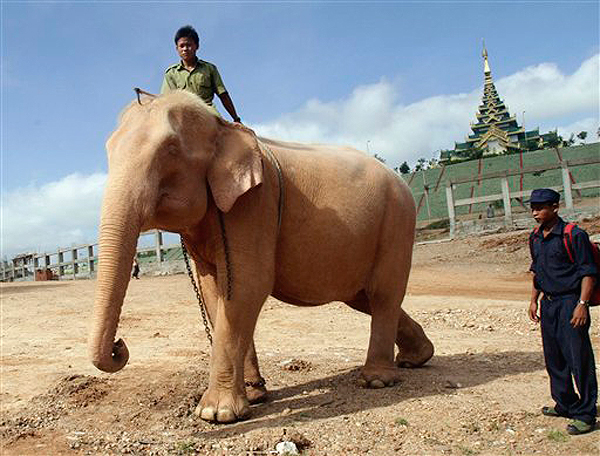During these difficult and polarizing times, it is important to remember the uncharted journey that our nation’s founders undertook that gave us the protections against tyranny that are more important than ever. The best way to truly understand the magnitude of their accomplishment is to witness first-hand the struggles of a country in this modern era fighting to achieve even the simplest semblance of democracy.
On a recent trip to Burma, now known as Myanmar, I saw what America’s founders must have seen: the thin line between tyranny and liberty, and the excitement that comes when the tipping point between oppression and freedom tilts in the favor of the people. One couldn’t help but think of the tyranny and oppression these people faced not even a decade ago.
But under the leadership and vision of so many — like Myanmar’s State Counsellor, Nobel Peace Prize recipient Aung San Suu Kyi — the long journey to freedom is getting closer. As she stated a few years ago, “Those of us who decided to work for democracy in Burma made our choice in the conviction that the danger of standing up for basic human rights in a repressive society was preferable to the safety of a quiescent life in servitude.”
Though we learn in school what typically defines a democracy, there is more to assessing the true freedoms of a society and the underlying foundation that democracies are built upon. A country that claims to be a free and open society in words can hide the fallacy in that statement through the physical and emotional intimidation of its people. But what is difficult to hide is how animals within their borders — not only in the wild, but those subject to government regulation — are treated. This is the proof, more than any other sign, that Myanmar is building the foundation of freedom and individual liberties not only in words but actions. As Mahatma Gandhi once stated, “The greatness of a nation can be judged by the way its animals are treated.”
On a recent visit, it was refreshing and inspiring to witness the commitment of the people of Myanmar to protecting their elephants. With all the struggles Myanmar is facing, the testament of who they are as a people is defined by their steadfast commitment to all animals, and especially the continued care of the approximately 3,000 government-owned timber elephants.
The situation was created when the government chose to end the devastation of their forests caused by excessive logging, which put these elephants and their mahouts out of work. Many governments, especially those faced with tremendous economic and political challenges like Myanmar, would have simply walked away from any commitment to help these elephants and its people, but they didn’t.
The fact that the government and the people have chosen to walk the landmine riddled path to their own grand experiment to the right of self-determination side-by-side with the elephants, is simply more proof of their desire to become a nation of freedom, compassion, dignity, and human rights.
Though we are faced with our own uncertainties, watching a country fight for the same values, freedoms and opportunities that we enjoy should give us the resolve to fight harder to ultimately keep us on the right side of the thin line between tyranny and liberty.


